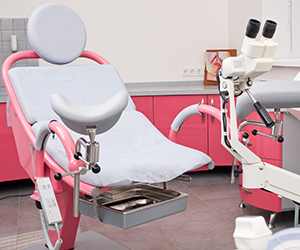Latest News Archive
Please select Category, Year, and then Month to display items
04 April 2024
|
Story Lunga Luthuli
|
Photo SUPPLIED
 Dr Juliet Kamwendo champions gender-inclusive climate action in Africa. Her expertise at the recently held AFR100 workshop highlighted vital steps towards sustainable and equitable development.
Dr Juliet Kamwendo champions gender-inclusive climate action in Africa. Her expertise at the recently held AFR100 workshop highlighted vital steps towards sustainable and equitable development.
Dr Juliet Kamwendo, Lecturer and Programme Director for Gender Studies in the Centre for Gender and Africa Studies at the University of the Free State, is spearheading efforts to integrate gender considerations into Africa's climate restoration agenda. Reflecting on her involvement, Dr Kamwendo stated, "This is particularly crucial, as women make up almost 50% of the population in Africa, and the depletion and degradation of land affect them disproportionately."
She recently served as a gender expert at the AUDA-NEPAD AFR100 workshop in Ouagadougou, Burkina Faso, from 25 to 29 March 2024. This initiative aims to restore forests and degraded land across Africa by 2030, with a focus on gender equality.
The workshop emphasised the integration of gender perspectives into the AFR100 project, acknowledging the disproportionate impact of land degradation on women. Dr Kamwendo's expertise highlighted the need to empower women in climate change interventions, addressing existing gender inequalities exacerbated by environmental degradation.
“Women – who are primarily responsible for household food security and water provision – bear the brunt of environmental degradation, leading to increased workloads, reduced income opportunities, and heightened vulnerability to climate-related disasters. Furthermore, the loss of forest cover and biodiversity further exacerbates the challenges faced by women, particularly in rural areas where they depend heavily on natural resources for their livelihoods,” added Dr Kamwendo.
Her participation highlights academia's crucial role in fostering inclusive and sustainable development, emphasising interdisciplinary collaboration to tackle complex environmental challenges. Through initiatives such as AFR100, stakeholders are working towards a more resilient and gender-responsive future for Africa.
Care centre goes high-tech to help sexual abuse victims
2016-11-25

The colposcope, donated by the Discovery Fund,
will be used during gynaecological examinations
to detect any irregularities.
Photo: Supplied
Rape is one of South Africa’s most pressing social problems. Rape levels in the country are often discussed and reported on, but it does not deter perpetrators from this behaviour. According to Africa Check, of the more than 42 000 rape cases reported in 2015, 15 790 were child rape cases.
In an effort to assist victims of sexual assault and rape, the University of the Free State (UFS) Department of Family Medicine adopted the Tshepong Thuthuzela Care Centre, under the leadership of UFS lecturer Dr Mariaan Kotze.
The Discovery Fund donated a colposcope to Tshepong Thuthuzela Care Centre, an instrument that works with the help of a bright light and which is used to examine victims of abuse. It has also become a standard of good practice in the assessment of child abuse worldwide. According to Dr Kotze, the new instrument will also be used for training health practitioners by rendering clinical forensic services to abuse victims.
Managing complex issues
The care centre works with between 80 and 120 victims of rape each month, a third of whom are children under 14 years of age. According to Dr Kotze, the management of child sexual abuse victims is more complex than with adults; as there is a higher chance of missing or over-diagnosing abnormalities. Also, she says, the examination process is often observed by a group of healthcare practitioners, an experience which is often intrusive and intimidating for the child. With the colposcope, the timeframe of the examination is shortened, and can be captured and viewed in real time, without the victim being present.
Best care for victims
The colposcope is a magnifier and light source used during gynaecological examinations. It is instrumental in providing the best care to victims of sexual abuse, and helps diagnose and assist in the treatment of cases of abuse. Its ability to capture and review images at the time of examination allows for retrospective research, and improves the ability of expert witnesses in court cases.